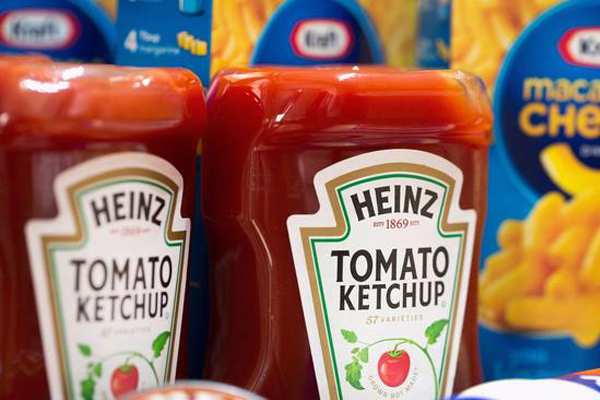
Unilever spurns $143bn Kraft Heinz surprise bid
NEW YORK, February 18, 2017
US food company Kraft Heinz made a surprise $143 billion offer for Anglo-Dutch consumer goods giant Unilever in a bid to build a global consumer goods giant.
But the Anglo-Dutch consumer goods giant has declined, saying in a statement the offer "fundamentally undervalues" the company, reported CNBC.
"Unilever rejected the proposal as it sees no merit, either financial or strategic, for Unilever's shareholders. Unilever does not see the basis for any further discussions," the statement said.
Nevertheless, Unilever shares soared more than 9 per cent Friday.
If successful, it would be the largest cross-border merger since the British wireless provider Vodafone’s $183 billion acquisition of Mannesmann of Germany in 2000.
Despite the rejection, Kraft Heinz said it would still work to reach an agreement on the terms of a transaction.
Kraft is backed by Brazilian private equity firm 3G Capital and Warren Buffett. Two years ago, H.J. Heinz, owned by Buffett's Berkshire Hathaway and 3G, announced a $45 billion takeover of Kraft Foods.
"While Unilever has declined the proposal, we look forward to working to reach agreement on the terms of a transaction," Kraft said in a statement. "[But] there can be no certainty that any further formal proposal will be made to the Board of Unilever or that an offer will be made at all," it stated.
Sources told CNBC, however, that it would be unlikely for Kraft Heinz to pursue a deal, if Unilever's board rejects the offer by March 17.
A Kraft deal with Unilever would add Hellmann's mayonnaise, Ben & Jerry's ice cream and Knorr soups to a portfolio that includes Heinz ketchup and Kraft Macaroni & Cheese.
In its statement, Unilever said the deal put an 18 per cent premium on Unilever's share price, the main area where the company claimed it was undervalued.
The premium would essentially become a food multiple for Unilever shareholders, said the report.
On paper, the company looks more like a packaged goods distributor than a food producer, with only roughly 38 per cent of Unilever's Ebitda, or earnings before interest, tax, depreciation and amortization, coming from its food products, it added.







